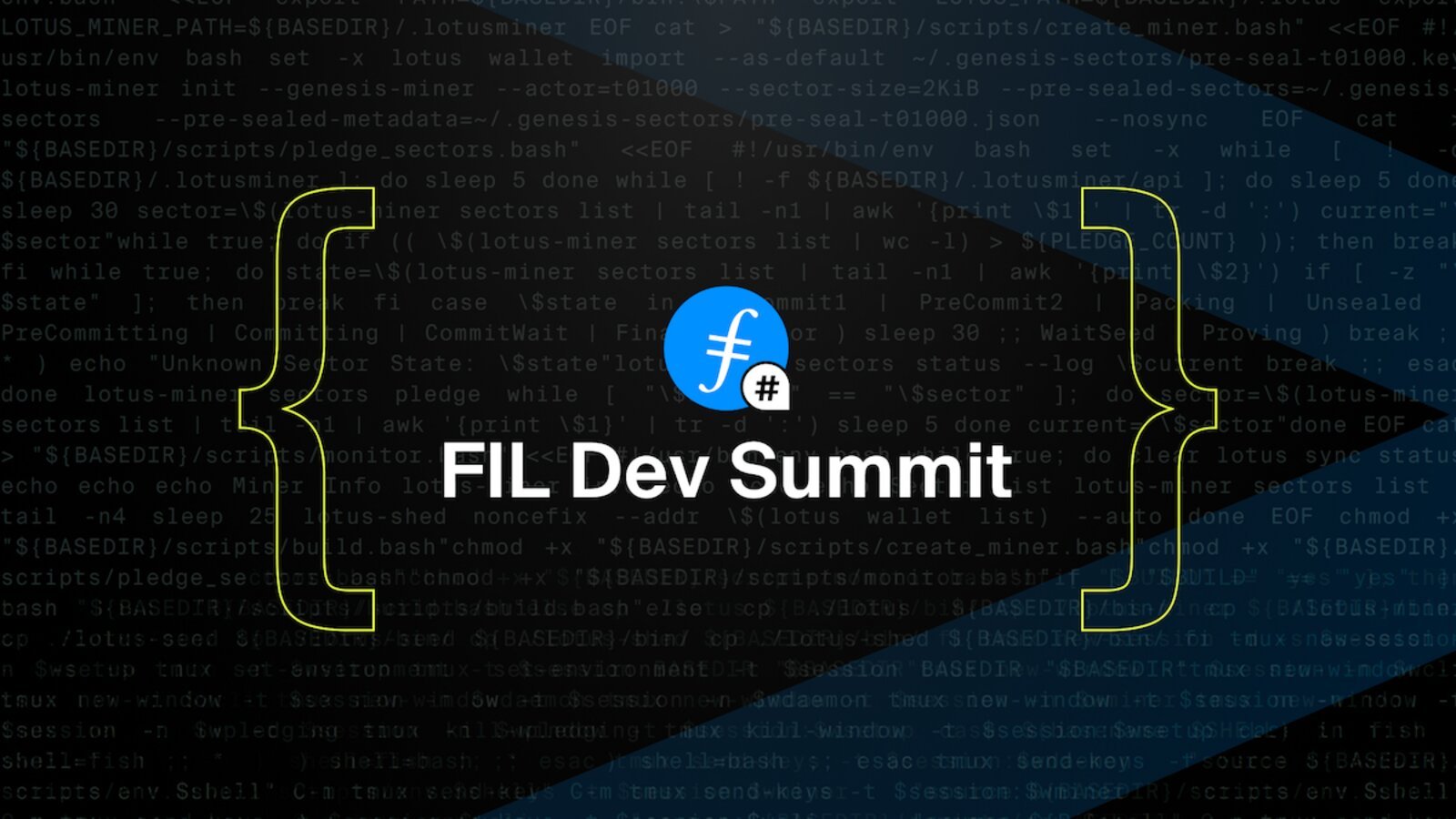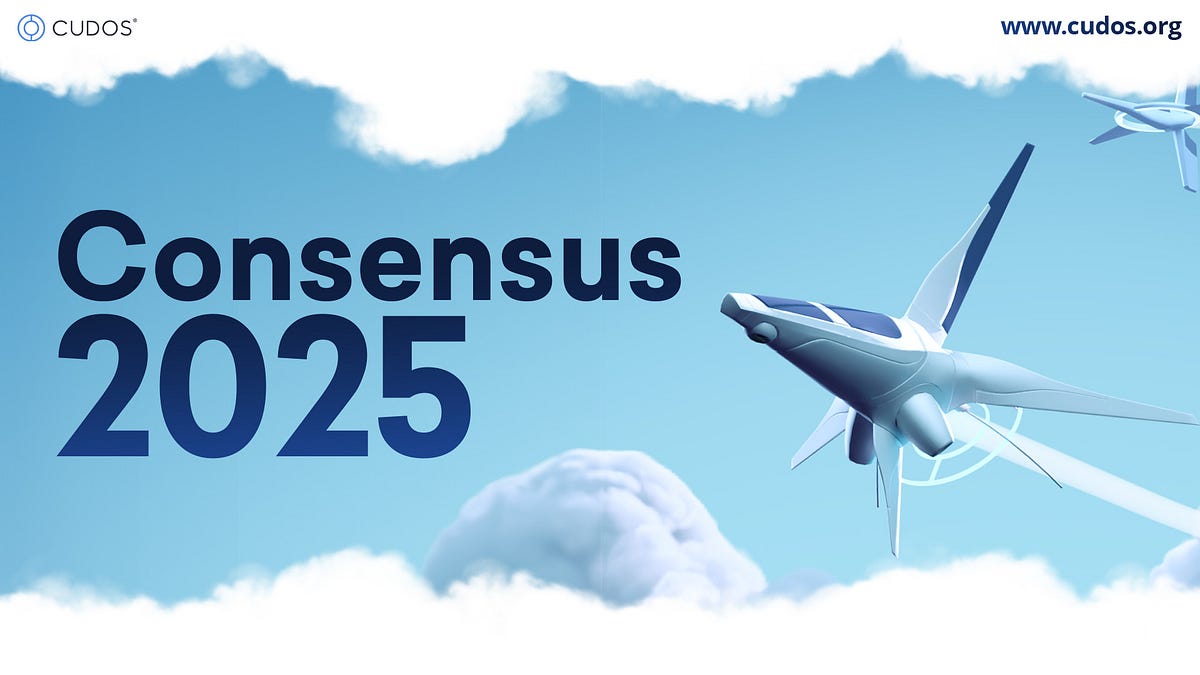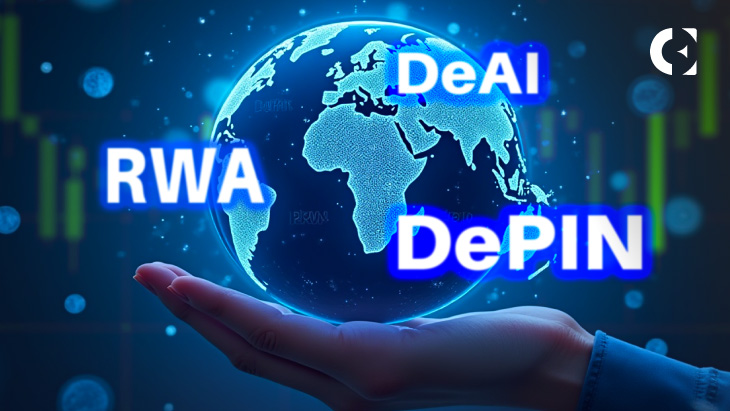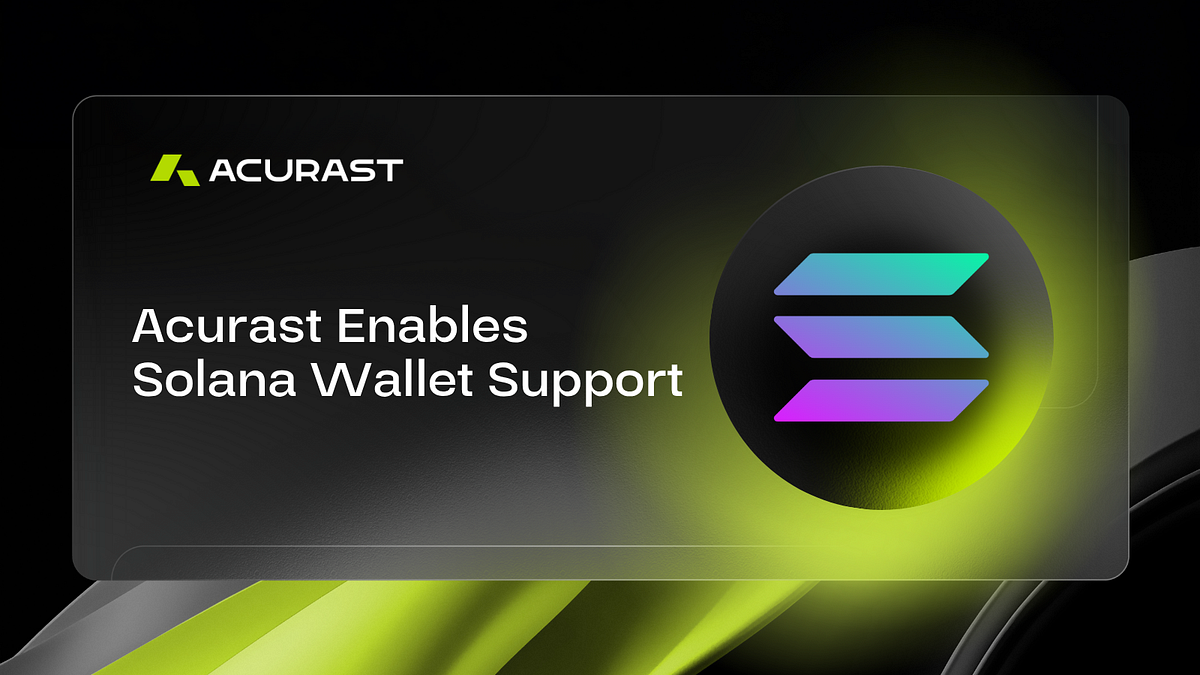FILLiquid Showcases at FIL Brussels Event
Monday, July 15, 2024 3:46 AM
258

FILLiquid participated in the FIL Brussels event, a significant gathering in the Filecoin ecosystem, discussing AI, DePIN, and Compute. The event, organized by the Filecoin Foundation, featured talks and workshops with industry leaders. Arthur Tan, CEO of FILLiquid, highlighted the company’s innovative Filecoin-based liquidity leasing solutions, aiming to enhance sustainable storage power growth. FILLiquid’s open-source protocol has been audited for security, offering a unique feature connecting FIL holders with storage providers for passive income opportunities. Currently in its testnet phase, FILLiquid is gearing up for mainnet launch, with participants eligible for a free $FIG token airdrop.
Buy Now at
Related News

3 days ago
CUDOS at Consensus 2025: Pioneering Decentralized Compute SolutionsThe recent Consensus 2025 event highlighted a pivotal shift in the blockchain landscape, emphasizing that decentralized infrastructure has become a necessity rather than an emerging trend. CUDOS took center stage, engaging with Web3 developers and AI infrastructure teams, showcasing their commitment to providing scalable, permissionless, and privacy-preserving compute solutions. The focus was clear: to eliminate gatekeepers and opaque pricing structures that often accompany centralized platforms, thereby promoting a truly decentralized computing environment through the CUDOS Intercloud initiative.
Throughout the event, various themes emerged, particularly around policy and regulation, which are expected to shape the future of blockchain innovation. Keynotes emphasized the growing importance of programmable stablecoins designed to operate outside traditional financial systems, highlighting the increasing demand for reliable infrastructure. The Hackathon Hall buzzed with activity as AI builders and decentralized physical infrastructure (DePIN) projects explored innovative solutions for decentralized inference, mining, and data services. Participants were not only focused on current developments but also on the future of Web3 and the role of AI in driving the next wave of innovation.
CUDOS stands out in this evolving landscape by offering digital wallet-authenticated access to high-performance GPU nodes without the need for accounts or KYC processes. Their cross-chain compatibility makes them a suitable choice for AI, DePIN, and Web3-native applications. As the demand for decentralized compute solutions grows, CUDOS Intercloud is positioned to support projects that require scalable infrastructure without the constraints of centralized control. The message from Consensus 2025 is clear: decentralized compute is essential for the future of AI, blockchain, and digital sovereignty, and CUDOS is at the forefront of this transformation.

4 days ago
Amp and Aethir Shine Amidst Crypto Market CoolingIn a cooling crypto market, Amp (AMP) and Aethir (ATH) have emerged as standout performers, each experiencing a notable 16% increase in value. Amp is currently valued at $0.0051, buoyed by strong bullish momentum supported by key Exponential Moving Averages (EMAs) and favorable trading signals from indicators like MACD and RSI, despite warnings of overbought conditions. Meanwhile, Aethir, which focuses on AI-driven blockchain solutions, has surged to $0.052, breaking past significant resistance levels and maintaining bullish optimism, although the overbought RSI suggests that traders should remain vigilant.
The divergence in the crypto market is evident as Helium (HNT) faces downward pressure, trading at $4.00 and struggling below the critical 200-day EMA. This situation poses a risk of further declines if it breaches the 100-day EMA support at $3.83. The contrasting trajectories of Amp and Aethir against Helium highlight the persistent volatility and innovation within the digital asset market, prompting traders to balance ambition with risk management strategies.
As traders navigate these turbulent waters, the resilience of Amp and Aethir underscores the potential for growth even amid market stagnation. Investors are encouraged to monitor key technical indicators closely, particularly EMAs and RSI levels, to identify optimal entry points and manage risks effectively. The ongoing developments in these projects reflect the dynamic nature of the cryptocurrency landscape, where innovation continues to drive interest and investment opportunities.

4 days ago
Helium: Revolutionizing Telecom with Decentralized NetworksHelium is making waves in the telecom industry by leveraging cryptocurrency to build what could be the most disruptive network in America. Originally starting as an Internet of Things (IoT) initiative, Helium has transformed into the world’s largest decentralized wireless network. With the support of the Decentralized Physical Infrastructure Network (DePIN) movement, Helium is redefining how infrastructure is constructed. Abhay Kumar, Helium's Protocol Lead, emphasized the company's mission: to create wireless infrastructure that fosters innovative business models. This evolution has allowed Helium to expand its services to include both IoT and 5G mobile networks, solidifying its position in the DePIN landscape.
The transition from connecting devices to connecting people has been pivotal for Helium. The launch of Helium Mobile, a new carrier, exemplifies this shift. In the U.S., users can access a free cell phone plan or opt for a limited plan at just $15 per month. Kumar attributes this affordability to Helium's unique protocol, which significantly reduces bandwidth costs for carriers. By utilizing the Helium network, carriers pay only 50 cents per gigabyte, a stark contrast to traditional pricing models. This cost efficiency is largely due to the DePIN model, which incentivizes individuals and businesses to install wireless nodes, such as 5G radios, in exchange for cryptocurrency rewards.
Helium's decentralized infrastructure approach has emerged as a leading example of the potential of DePIN. Kumar noted the company's fortunate timing in establishing this model before it became widely recognized. By allowing local shop owners to contribute to the network, Helium not only enhances customer satisfaction but also enables carriers to extend their reach. The collaborative nature of this model benefits all parties involved, showcasing how decentralized networks can revolutionize the telecom sector and create sustainable business practices.

4 days ago
Crypto Market Resurgence: Theta, Gala, and PayFi Lead the ChargeThe crypto market is experiencing a resurgence, with notable gains in tokens like Theta, Gala, and Sandbox, which have reignited interest in the metaverse and GameFi sectors. Theta Network has seen a remarkable 37% price increase, buoyed by a partnership with Nanyang Technological University to develop EdgeCloud AI infrastructure. This collaboration aims to enhance decentralized video streaming and NFT platforms, positioning Theta as a leader in AI-powered Web3 services. Despite a slight price correction, the overall trend remains bullish, reflecting growing investor confidence.
Gala Games is also riding a wave of optimism, with its token GALA surging nearly 47% following a high-profile partnership with the White House to create a Web3-based Easter Egg Hunt game set for 2025. This unexpected collaboration has not only boosted GALA's price but also sparked interest in the GameFi sector, leading to a broader uplift in the crypto market. The sustained gains and high buying interest indicate a strong recovery and renewed enthusiasm among investors, showcasing Gala's potential for mainstream adoption.
Amidst these developments, PayFi is emerging as a transformative force in the crypto landscape. Platforms like Remittix are redefining cross-border payments by enabling instant crypto-to-fiat transfers without requiring users to have extensive crypto knowledge. With support for over 50 crypto pairs and a user-friendly interface, PayFi is poised to revolutionize real-world finance. As the crypto market continues to evolve, the focus on practical innovations like PayFi suggests that 2025 could mark a significant shift toward mainstream adoption of blockchain technology in everyday financial transactions.

4 days ago
Exploring the Growth of RWAs, DePINs, and DeAI in 2025In May 2025, the tokenization of real-world assets (RWAs) has surged, reaching a valuation of $22.5 billion, with projections suggesting it could hit $50 billion by the end of the year. This growth is largely attributed to the increasing integration of decentralized finance (DeFi) with traditional financial assets, such as real estate and government bonds. Notably, institutional investors like BlackRock and Goldman Sachs are playing a pivotal role in this expansion. The U.S. Securities and Exchange Commission (SEC) has also shown a commitment to this sector by hosting a tokenization roundtable, signaling a positive regulatory environment for RWAs. Analysts predict that the RWA market could grow to a staggering $10 trillion by 2030, highlighting its potential to dominate the crypto landscape in the coming years.
Alongside RWAs, the Decentralized Physical Infrastructure Networks (DePIN) market is projected to reach $3.5 trillion by 2028. DePIN aims to revolutionize physical infrastructure by utilizing blockchain technology to create decentralized networks for computing, storage, and connectivity. This innovative approach could disrupt various industries, including telecommunications and IoT. Leading projects such as Theta Network and Akash Network are at the forefront, providing cost-effective solutions for AI workloads and IoT applications. The growing interest in decentralized energy grids and smart cities further emphasizes the importance of DePINs in the evolution of Web3.
The Decentralized Artificial Intelligence (DeAI) sector is also on the rise, merging blockchain with AI to foster transparent and censorship-free ecosystems. With the AI and RWA crypto token market already valued at over $65 billion, DeAI is poised for significant growth, driven by advancements in decentralized computing. Platforms like SingularityNET and Fetch.ai are leading the way in creating decentralized AI models. The interconnectedness of RWAs, DePINs, and DeAI suggests a synergistic relationship that could redefine the future of the crypto cycle in 2025, provided that challenges such as scalability and regulatory hurdles are effectively addressed.

5 days ago
Acurast Integrates Solana Wallet Support to Enhance Decentralized Compute AccessibilityAcurast, a pioneering decentralized compute network based in Zug, Switzerland, has recently announced the integration of Solana Wallet support into its Android and iOS applications. This significant update aims to simplify the onboarding process for new contributors, allowing them to utilize wallets like Phantom to connect their smartphones and provide compute power while earning rewards. With this enhancement, Acurast is not only expanding its accessibility but also reaching a broader audience within the web3 ecosystem. Co-Founder Alessandro De Carli emphasized the importance of inclusivity and ease of access in decentralized computing, stating that the future must be fast and user-friendly.
The core mission of Acurast is to redefine cloud computing by transforming everyday smartphones into secure, decentralized compute nodes. Leveraging Trusted Execution Environments (TEEs) found in modern mobile devices, Acurast offers a scalable and confidential compute infrastructure that operates independently of centralized data centers. With over 65,000 active phones contributing to the network and processing 250 million transactions across 130+ countries, Acurast has established itself as the world's most decentralized compute network, showcasing the potential of community-driven technology.
The integration of Solana Wallets is particularly noteworthy due to Solana's reputation as a fast and cost-effective blockchain ecosystem with a growing user base. This development allows users to quickly connect their wallets to the Acurast Hub, onboard their devices in minutes, and securely provide compute resources. The latest versions of Acurast Core and Acurast Lite are now available on both the Play Store and App Store, making it easier than ever for users to join the movement towards a resilient and community-powered compute network, especially in light of vulnerabilities in traditional cloud infrastructure.
Signup for latest DePIN news and updates